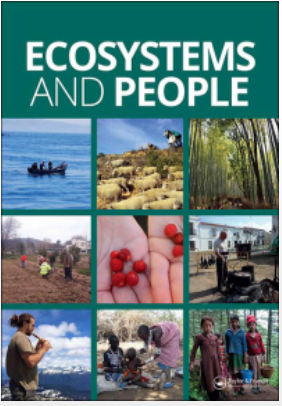社会生态变化:来自南部非洲生态系统变化与社会项目的见解
IF 3.7
Q1 Agricultural and Biological Sciences
引用次数: 5
摘要
社会生态系统(SES)研究已成为可持续发展科学的一个重要领域,为实现更可持续、公正和公平的未来提供信息和支持。迄今为止,许多SES研究已经在全球北方或从全球北方完成,在那里,支持可持续性转型的挑战和背景与全球南方有很大不同。本文综合了关于SES动态的新见解,这些见解可以为行动提供信息并推进研究,以支持特别是在南部非洲背景下的可持续性转型。本文借鉴了与南部非洲生态系统变化与社会项目(SAPECS)成员相关的工作,SAPECS是该地区领先的SES研究网络,综合了SAPECS的五个核心主题的关键见解:(i)跨学科和参与研究,(ii)生态系统服务和人类福祉,(iii)治理机构和管理实践,(iv)空间关系和跨尺度联系,以及(v)政权转移,陷阱和转型。对于每个主题,我们专注于在南部非洲背景下特别新颖、有趣或重要的见解,并反映该地区未来SES研究的关键研究差距和新兴前沿。这种基于地点的见解对于理解世界各地SES动态的变化非常重要,并且对于通知上下文敏感的全球议程以促进从地方到全球范围的可持续性转变至关重要。本文章由计算机程序翻译,如有差异,请以英文原文为准。
Social-ecological change: insights from the Southern African Program on Ecosystem Change and Society
ABSTRACT Social-ecological systems (SES) research has emerged as an important area of sustainability science, informing and supporting pressing issues of transformation towards more sustainable, just and equitable futures. To date, much SES research has been done in or from the Global North, where the challenges and contexts for supporting sustainability transformations are substantially different from the Global South. This paper synthesises emerging insights on SES dynamics that can inform actions and advance research to support sustainability transformations specifically in the southern African context. The paper draws on work linked to members of the Southern African Program on Ecosystem Change and Society (SAPECS), a leading SES research network in the region, synthesizing key insights with respect to the five core themes of SAPECS: (i) transdisciplinary and engaged research, (ii) ecosystem services and human well-being, (iii) governance institutions and management practices, (iv) spatial relationships and cross-scale connections, and (v) regime shifts, traps and transformations. For each theme, we focus on insights that are particularly novel, interesting or important in the southern African context, and reflect on key research gaps and emerging frontiers for SES research in the region going forward. Such place-based insights are important for understanding the variation in SES dynamics around the world, and are crucial for informing a context-sensitive global agenda to foster sustainability transformations at local to global scales.
求助全文
通过发布文献求助,成功后即可免费获取论文全文。
去求助
来源期刊

Ecosystems and People
Agricultural and Biological Sciences-Ecology, Evolution, Behavior and Systematics
CiteScore
7.80
自引率
11.30%
发文量
40
审稿时长
42 weeks
期刊介绍:
Ecosystems and People is an interdisciplinary journal that addresses how biodiversity and ecosystems underpin human quality of life, and how societal activities and preferences drive changes in ecosystems. Research published in Ecosystems and People addresses human-nature relationships and social-ecological systems in a broad sense. This embraces research on biodiversity, ecosystem services, their contributions to quality of life, implications for equity and justice, and the diverse and rich ways in which people relate to nature.
 求助内容:
求助内容: 应助结果提醒方式:
应助结果提醒方式:


